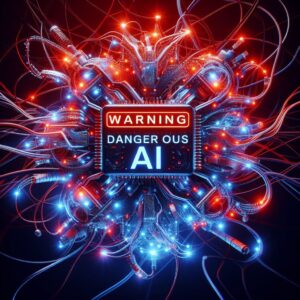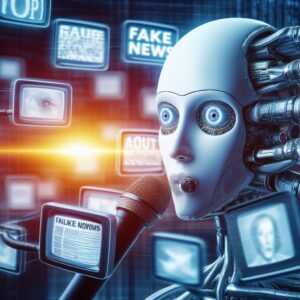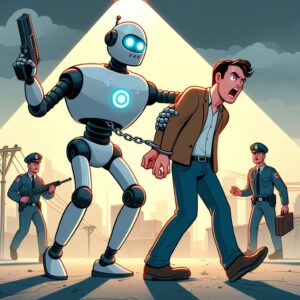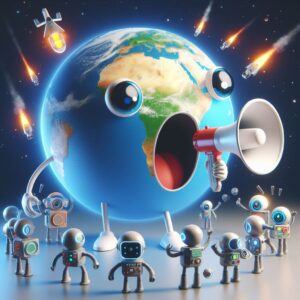Content
Introduction
A human’s connection with fear has mostly never been defined in a way that gives us clarity of do we like fear or not. People love watching horror movies. The roller coaster journey of the ghost making a home in the beautiful girl’s body has always been a perfect plot. But we never want the evil to win. We love the adventure of how the love of her life, goes through a near spine-bending journey and beats the supernatural to keep the love of his life alive.
Fear is our core primal emotion rooted in our survival mechanism. But, if we ask anyone, do they like fear? The answer is always no. Fearing something in real life is not a good feeling. Bad because it is accompanied by anxiety and stress, our heart going through that constant struggle of winning over evil.
Apart from evil, what do humans fear? – CHANGE (The size of the change is directly proportional to the size of fear it creates)
The most constant fear of change is the fear of the future. The world keeps on changing every day. The quickest thing that’s changing in the 21st century is technology. And, the latest big thing in the technological world is Artificial Intelligence.
The Harvard Gazette says that business spending on AI shall hit the $50 billion mark this year. By 2023, it will most probably hit the $110 billion mark, which indicates how eager are companies to integrate AI into their businesses. ( Or might be how eager are they to replace humans ;D)
What is artificial intelligence?
Alan Turing, the man who was behind the creation of the first modern computer that helped to decode the enigma machines of Germans during World War 2 once said – “I propose to consider the question, ‘Can machines think’?” The idea of artificial intelligence came into existence from Alan Turing’s published work – “Computer Machinery and Intelligence”. The term Artificial Intelligence was first coined by John McCarthy in 1956 at MIT (Massachusetts Institute of Technology).
Artificial intelligence is when complex algorithms and mathematical functions are used in a way that a machine mimics human-like intelligence. Tasks like visual perception, sound recognition, decision making and even suggesting solutions for problems. To do all this we need the machines to think on their own and that is what artificial intelligence does – makes machines think.
It surpasses human cognitive abilities in multiple ways. This inference can be made from the abilities of computers or even machines as small as calculators.
Dichotomy
 The world is today at a dichotomy of whether to adopt AI with open hands or just kill the idea of its mere existence. Fearing AI has become a pressing issue as there is a realisation – AI will take the repetitive jobs for sure but it’s coming sooner for the high-end decision-making jobs. Thanks to the development of supercomputers and the collection of heaps of data. All this is mind-wracking. If everything that we saw in movies about AI became true?
The world is today at a dichotomy of whether to adopt AI with open hands or just kill the idea of its mere existence. Fearing AI has become a pressing issue as there is a realisation – AI will take the repetitive jobs for sure but it’s coming sooner for the high-end decision-making jobs. Thanks to the development of supercomputers and the collection of heaps of data. All this is mind-wracking. If everything that we saw in movies about AI became true?
Will it end humanity?
Is it good to make them less like us, otherwise, they will make us like them. A new species like humans. (The animal kingdom for sure would not be happy with this idea of silly Humans)
Humans might even take decades to learn from their mistakes, we are creating something that learns from its mistakes in an instant and executes corrections that’s required instantly.
If that’s the case, the game would be of subservience – One shall Rule.
This challenges human supremacy. There is a story that scientists built an intelligent computer. The first question they asked was “Is there a God?” – The computer replied there is NOW.
Fearful Questions
An eminent futurist, Ray Kurzweil, has prophesied that by 2045, we will have achieved technological singularity, which loosely translates to having robots as intelligent as humans or even more. So some of us would be lucky to have a glimpse of futuristic robotic ideas in reality which we grew up reading in our comic books and movies. Robots taking over the world.
But experts are saying AI is dangerous- Very Very DANGEROUS.
The catalyst to this nerve-wracking thought is, the machines do not understand between right and wrong. We humans are also not able to define the right path between right and wrong, we too sometimes despite having the best of intentions hurt someone. But we know when to stop, a machine might not be able to stop itself and that might end in lethal results. the major concerns with AI today are :
1. False Imagery
A recent harvest from extensive research in the realm of Artificial Intelligence has led to the proliferation of Fake Pictures of people worldwide.
Some instances that were in the limelight were Pope Francis donning a puffer coat or the former president of The United States, Donald Trump, being detained by the police was quite a sensation.
Now, imagine a female’s face being taken and put on some other person’s naked body. A similar thing can be done to a male too (Power of AI). You might not know when your naked images be flashing all over the internet and social media.
AI today is capable of destroying a person’s social, personal, and mental life. Some clicks and rights prompts are given by some random individual or worse by someone close to you in any part of the world.
Some clicks and Boom – You are naked worldwide.
This can also lead to blackmail, extortion, defamation, privacy violations, and cyberbullying. According to a report from Sensity AI, an AI-powered bot was used to strip off 105,000 women to create nude images. Mostly misuse of AI is done to create pornographic content.
In November of 2023, a US high schooler was accused of spreading fake nude AI-generated images of his classmates that created a wave of feeling ‘humiliated and powerless’ in the girls. The girls were a victim of the fruits of Artificial Intelligence.
2. Your Voice
AI voice cloning also called voice synthesis or voice mimicry is something that can be used in the present day to replicate any person’s voice.
Consider this scenario: if a mother gets a call from an AI-generated voice cloning bot that calls impersonating her son. The son on the call seems to be distressed and is in urgent need of financial assistance. AI bot mimics the son’s tone, and expressions and even mentions some personal details adding a layer of authenticity. The whole conversation seems genuine and adds to the emotional concern of the mother for her son. The son asks for money to be sent to his friend’s account as his phone is switched off, rendering him unable to use his bank account. The mother fuelled with motherly concern immediately transfers some funds. This unsettling narrative specifies how AI makes scamming easy.
 Similarly, AI could destroy personal or professional relationships, spread fake information, and sabotage a business by exploiting the employees or executives of a company. It could even topple governments or even get access to sensitive information about a country’s security. It has the potential to lead us to situations that end in the loss of innocent lives.
Similarly, AI could destroy personal or professional relationships, spread fake information, and sabotage a business by exploiting the employees or executives of a company. It could even topple governments or even get access to sensitive information about a country’s security. It has the potential to lead us to situations that end in the loss of innocent lives.
https://www.cbc.ca/news/canada/saskatoon/fraudsters-likely-using-ai-to-scam-seniors-1.6879807
https://www.cnn.com/2023/04/02/tech/ai-generated-images-social-media/index.html
3. Job Displacement
It’s said that about 40% of jobs will be displaced by the year 2035 in the hands of AI (Yes, my optimist friends, jobs will be created too. But, will the new ones cater to the ones who will lose their jobs in the first place). Back in the 1980s and 90s, individuals with blue-collar jobs feared the advent of AI. However, as the future unravelled itself, the story turned into something else. Today, far before blue-collar workers, the white-collar folks are facing the run for job security. 
**When it comes to job creation, there are still huge debates going on. On the fear part, will there be any incentive for the creation of meaningful jobs for regular people? AI does not require any salary, any health benefits, and would not go on strike for any reason. Replacing employees with something that can work 24/7 and would not require any breaks, seems a good business investment.**
There is no reason why a company would consider hiring an untrained fresh graduate. A better option is, they hire an artificially intelligent machine that can work 10 times better than a human or even more, in 10 times less money. It won’t require any weekend offs or sick leaves. A machine does not desire any benefits like health care or annual increments. Will there be any incentive for the creation of new jobs? Governments still might make some feeble efforts, but businessmen surely won’t. Automation is a new boom in the present day, in future it may take over all the spheres of the workforce.
This would lead to the age-old problem – Make the rich richer and the poor poorer, and that is not Ai’s fault, that’s how we organize society.
4. Lack of morals and ethics
AI does not possess any consciousness or emotions of its own. The technology just works on the data that is fed to it. Just a small lack of data can lead to dangerous outcomes. There are multiple ethical concerns relating to AI but the worrisome ones are –
At one end the society is demanding full transparency from governments in the way they govern the citizens they serve (Yes you may laugh). On the other end, we are moving towards creating opaque systems that surely may have intentional or unintentional biases. AI does not possess any emotions or consciousness
Debates are going on all over the world, majorly pointing towards –
1. If AI is gonna facilitate all kinds of decision-making, then what value would human judgement or even intelligence be of?
2. Governments have no surveillance on data collection by companies all over the world today. How will humanity deal with a technology which would think and collect once pure AI comes into existence?
3. Humans are developing Artificial Intelligence. People are full of biases and discrimination all over the world. It can be based on colour, gender, ethnicity, religion and today even on how a person expresses. We are far from creating an all-inclusive society. How can we expect the creators of AI to create a bias-free technology?
If there is a glitch and someone is killed. then who will we punish? – the machine, the makers or THE TIME?
5. Social Manipulation and Disinformation
Another very interesting question is, can AI fool us or play with day to day happenings of our lives? 
An AI-created spoof image of smoke from The Pentagon building sent chills down everyone’s spine. The stock market faced a dip in the session it got viral. However, the experts clarified instantly that the image was faked and the market bounced back. One learning from this incident was AI in the wrong hands can cause panic in people at times. More severe threats are on the way.
Also, the infamous unlawful data collection by Cambridge Analytica which led to influencing the decision on Brexit is another example. Disinformation can break countries and data-driven artificially intelligent systems are the greatest tool for someone with malicious goals.
No wonder, if needed, orchestrating a war between nations would be second nature to an artificially intelligent system.
https://www.nytimes.com/2023/05/23/business/ai-picture-stock-market.html
6. What the world has to say?
How lethal is today’s AI technology?
Elon Musk said it’s possible to use drones with Face ID from phones to kill someone or anyone. You just have to program the drone to use the FACE ID from the phones. The drone just needs to do a Grid Sweep of an area or building. Once, the drone finds the target, it executes it. Elon Musk also says AI is far more dangerous than nukes. 
Michio Kaku, the famous American theoretical physicist once said, that artificially intelligent robots today have the intelligence of a cockroach. In some years they might have the intelligence of a mouse, then of a dog and in 100 years they might have the intelligence of a monkey. Then there might be a problem.
If the robot with monkey intelligence starts to have murderous thoughts we will have to put a chip in the brain of that robot that would self-destruct it in such a scenario.
But, in 200 years the robots will have an intelligence smart enough that they will be self-aware. Now, they will know how to remove that chip from their brains. As a matter of fact, they would be equipped with enough resources to kill any plan or strategy that would harm their existence.
Sounds like the creation of AI-powered robots, is suicide for humanity. (Just sounds – Chill)
Conclusion
Will humans end up being superfluous? If Murphy’s law (“Anything that can go wrong will go wrong”) was true then we all are doomed but it’s not a scientific law and is just based on how humans fear every situation. Let’s hope Artificial Intelligence ends up being a great boon to society and not the end of Freedom and Humanity.
We need strong government regulations for the use of AI and any product digital or material should be marked as AI-generated. If not then it should be by law made a serious crime with harsh punishments following. If not, then we would lose democracy. This is suggested by Godfather of AI Geoffrey Hinton – The problem is some politicians might love to lose democracy. Also, he suggested incorporating the human-in-the-loop concept where AI facilitates human life rather than replacing humans completely.
Will artificial intelligence kill human intelligence in a few centuries?
Well, we have multiple human-created issues on planet Earth like nuclear wars, climate change, biodiversity threats, ethical concerns in the field of genetic engineering, and now even pandemics. We can add one more to the list, and just go on living our lives till one of these threats becomes a reality.
Food for thought – “Are we someone’s artificially intelligent creation?”
Share this post: on Twitter on Facebook
